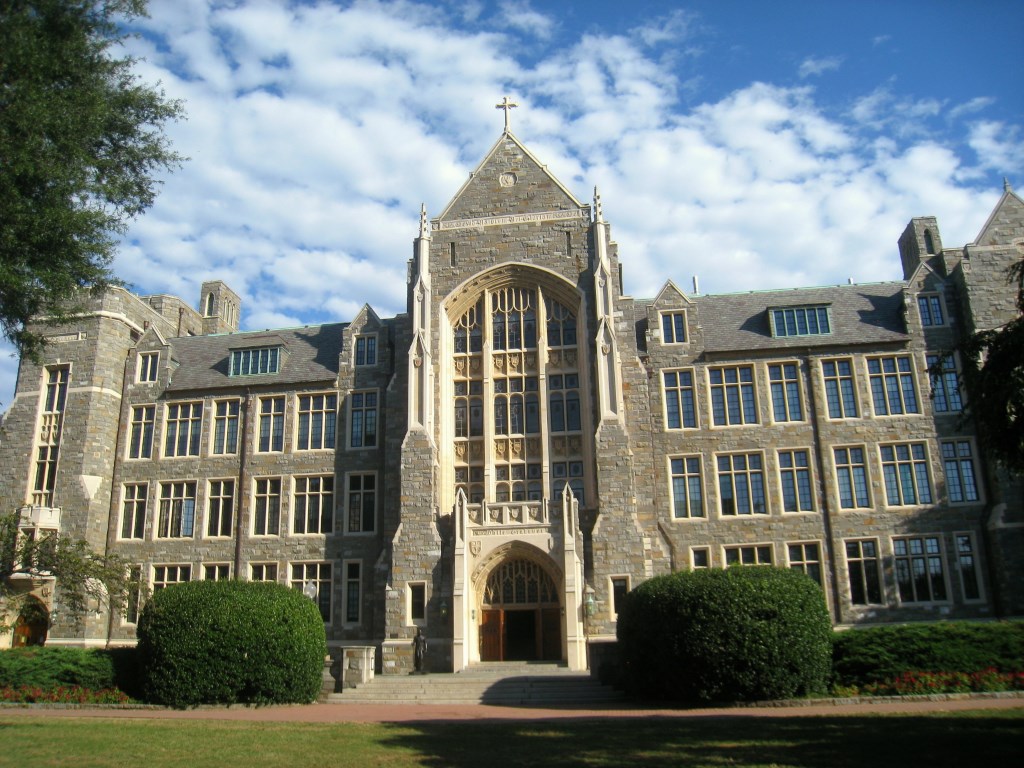Universities under scrutiny for foreign funding
July 12, 2019 | Expert Insights

BACKGROUND
In the recent past, national security agencies, federal granting agencies, the White House and members of Congress have shown increasing concern about international students or scholars seeking to exploit the accessibility of the US academic environment for their own or nations' gain.
The committee has notified that in addition to the balance between scientific openness and national security, there has to be a third dimension-economic competitiveness. All this is taking place in the context of Trump’s trade war with China and an increasingly contentious relationship between countries.
ANALYSIS
The Department of Education (ED) is investigating foreign sources of funding to Georgetown University, Texas A&M University. The ED sent letters to the universities alleging that neither university has fully disclosed their funding from Qatar, China, Russia and Saudi Arabia to the federal government.
Federal law requires U.S. colleges to report contracts and donations from foreign sources totalling $250,000 or more, but past filings from Georgetown and Texas A&M “may not fully capture” that information. More schools are likely to face questioning as federal officials focus on an issue they see as being crucial to transparency and national security.
Over the past decade, Qatar has given more than $1.4 billion to 28 schools and 98% of Qatar’s support has gone to just six U.S. schools: Texas A&M, Georgetown, Cornell, Carnegie Mellon, Northwestern and Virginia Commonwealth. Each school has a campus in Qatar, with operating costs covered by the Qatar Foundation, a nonprofit group led by the country’s royal family.
Last year, lawyers for the Qatar Foundation filed a lawsuit in Texas seeking to block Texas A&M from releasing records about the country’s donations, arguing that they amount to “trade secrets” and could give competitors an unfair advantage. The Zachor Legal Institute is opposing the request, which is now pending in court.
Security Studies Group Senior Vice President David Reaboi wrote that Qatar funnels money toward American universities to garner support for the Qatari regime. The Qatar Foundation, which Reaboi describes as being “like Al Jazeera” in how it’s used for the Qataris “to project soft power,” provided “hundreds of millions of dollars” to the universities.
Investigators also ordered both schools to disclose funding from Huawei or ZTE, the Chinese tech giants that some U.S. officials call a threat to national security. Georgetown is required to provide details of the grants it received from any sources in Saudi Arabia or Russia, including Kaspersky Lab, a Russian cybersecurity company.
The US government questioned Georgetown about any communications related to the Prince Alwaleed bin Talal Center for Muslim-Christian Understanding. It was founded in 1993 and was named in 2005 after the Saudi royal following a $20 million gift. Investigators also probed about the Georgetown Initiative for U.S.-China Dialogue on Global Issues. Georgetown revealed that China offered $5.5 million since 2012. This includes $500,000 from the Agricultural Bank of China, $1.6 million from the China Construction Bank, and $1.2 million from the Government of Guangdong. Georgetown also received a $500,000 gift from the China-based Spring Breeze Foundation.
In February 2019, a bipartisan panel in Congress urged U.S. colleges to cut ties with the Confucius Institute, a Chinese language program funded by a branch of the Chinese government. The same panel found that 70% of U.S. schools receiving $250,000 or more from China to operate Confucius Institutes failed to report the funding and that the Education Department failed to provide adequate oversight.
In a statement, Betsy Devos, Secretary of Education, noted that "the Department expects colleges and universities to provide full, accurate, and transparent information when reporting foreign gifts and contracts."
"Our national security depends on it, and this is what the law requires," said Devos. "These investigations make clear that the Department expects institutions to take these reporting obligations seriously and that it will exercise its oversight responsibility, when necessary."
The National Security Agency (NSA) has announced its intention to create a cybersecurity directorate in a bid to defend the U.S. against foreign adversaries.
ASSESSMENT
- There is a precedent in the Western world when it comes to the influence of foreign donations to colleges and universities. We feel that funding sources can inhibit the independence and autonomy of academia. We think that donors can determine how benefactors use the money they donate, and if these donors are royal families or governments, the potential for influence can be more disturbing.
- We believe that the funding organization may be able to place their own recruits in positions with little or no oversight from the university, which is a threat to national security. We feel that donations also establish a goodwill attitude and build a sense of trust between the donating institution and the university.
- We reckon that the reach of this problem has been demonstrated at Harvard Law School, which has established a Shariah Law and Shariah Finance section, while also receiving tens of millions of dollars from monarchies in the Islamic world, notably Saudi Arabia and the United Arab Emirates.
Image courtesy - Public Domain








Comments